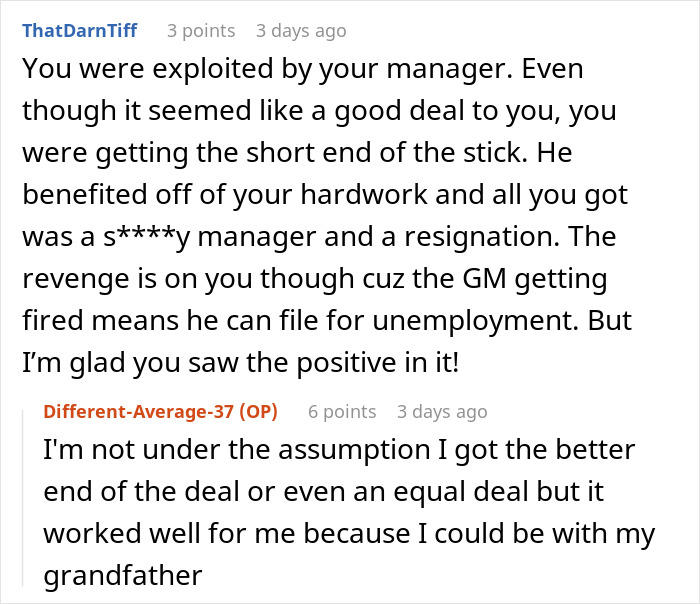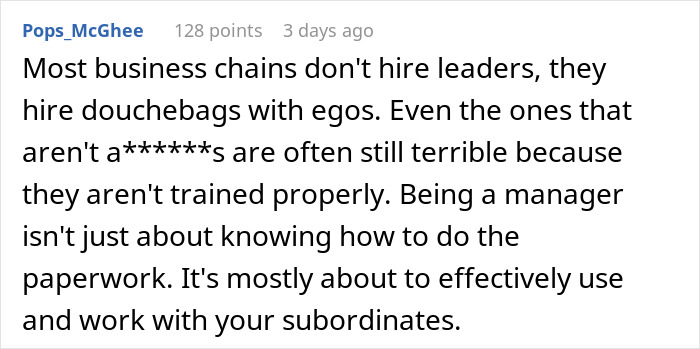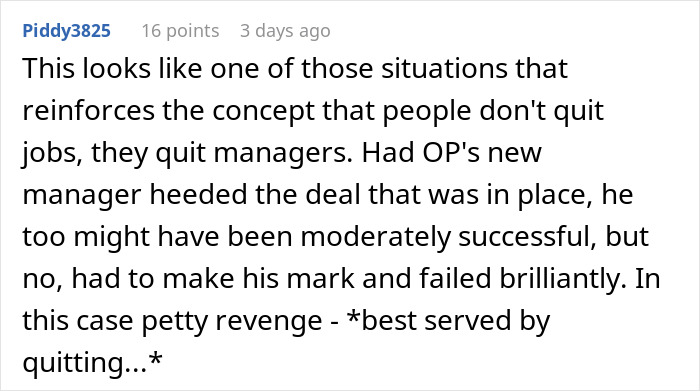Not all employees are the same, even if they work the same job. Everyone’s circumstances are different, so some workers might have certain arrangements with their boss, just as this fast-food restaurant employee did. He wasn’t against working 24-hour shifts in exchange for a week off once a month and a chance to see his ailing grandfather.
However, everything changed when a new manager came into the picture. He wasn’t willing to compromise, so the employee decided it was not worth the drama and quit. That’s when it went downhill for the restaurant. The employee shared his story of petty revenge with people online to show how essential workers like him really are.
Having a good and dedicated employee is rare, so managers usually hold on to them

Image credits: mstandret / Envato Elements (not the actual photo)
But this productive employee had a jerk of a manager whose downfall was his inability to compromise

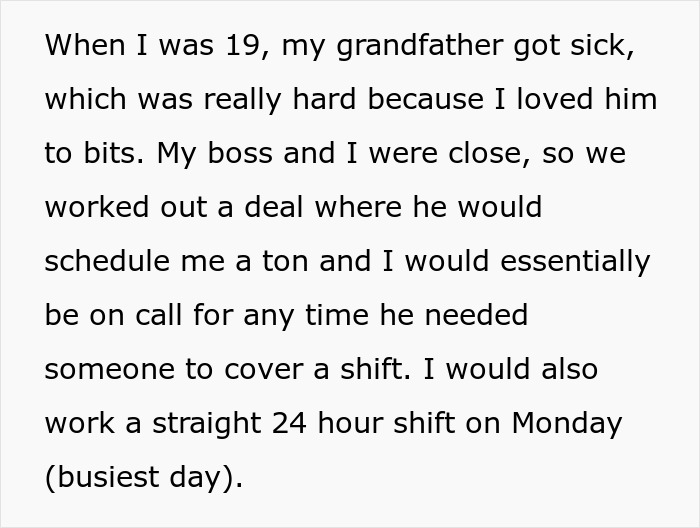
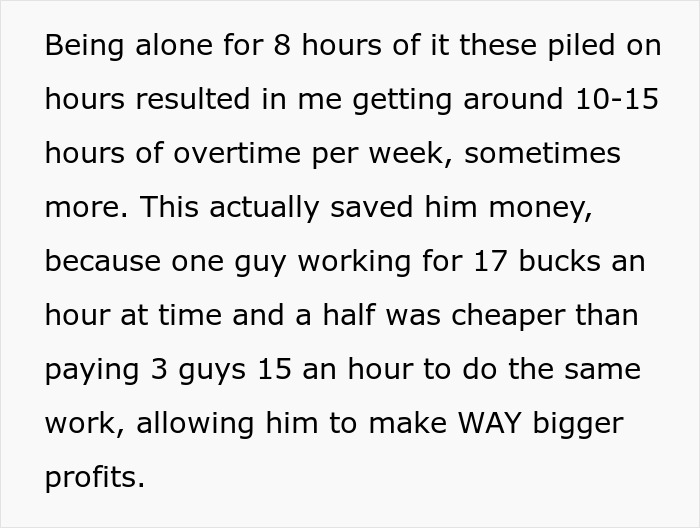


Image credits: engin akyurt / Unsplash (not the actual photo)
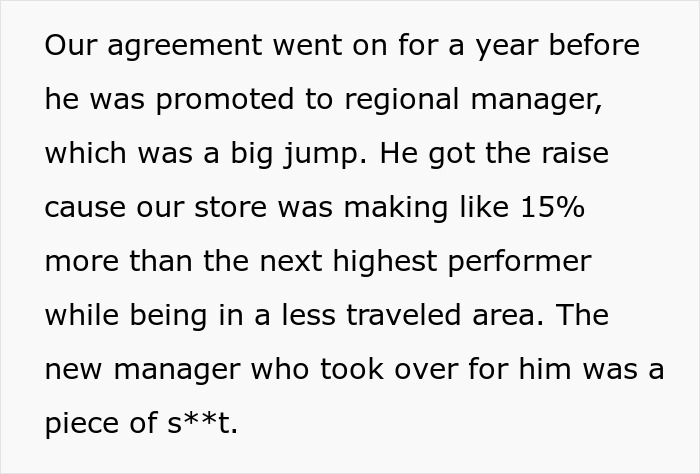
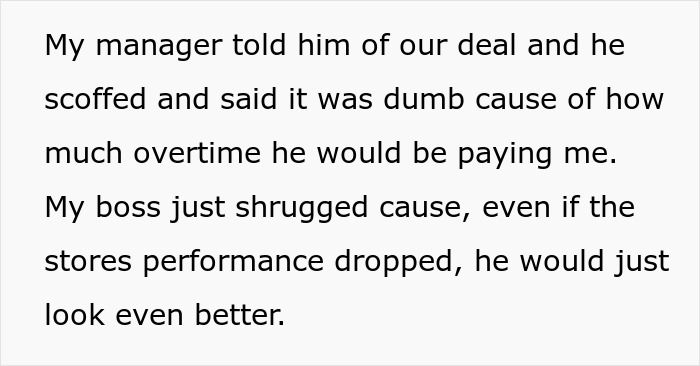
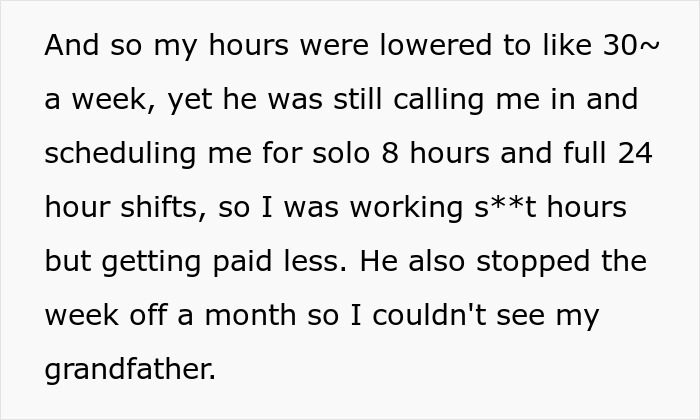
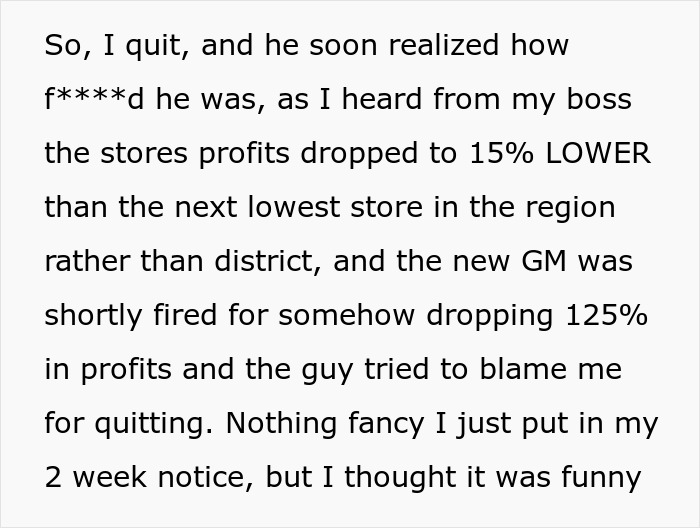
Image credits: Different-Average-37
According to employees, a good boss listens, is approachable, and isn’t afraid to admit to mistakes
Having a good manager can be a blessing. A survey by the Australian College of Applied Professions found that 27% of people ‘dislike’ their managers. Workers claim that their managers lack emotional intelligence, micromanage them, or lack empathy about their employees’ lives outside of work.
The first boss in this story seems to be a good one. He allowed the author of this story to adjust his work schedule to his personal life and made compromises without making a fuss. The new manager, however, was described as inflexible and willing to throw others under the bus to save face.
As Organization Development Consultant Louise Carnachan told Bored Panda before, those who rise to leadership positions often lack the skills to be good managers. “Most people are thrown into leadership positions because they’ve been there a while and were very good at their job—not because they’ve demonstrated competence in leading others, which is a totally different job.”
“Unless you’ve had a role model to follow, you’re probably at sea about what to do,” Carnachan spoke from the point of view of a new manager. “The leaders most people say were their best boss ever tend to have similar characteristics although the personalities may be completely different.”
Most employees want their managers to listen, be open to questions, and have them know at least a fact or two about their employees’ lives. “They tell people what they are doing well and what they appreciate, are clear about goals and direction, have high expectations of themselves and their team members, don’t shy away from difficult conversations, and aren’t afraid to admit when they make a mistake,” Carnachan listed other qualities of a good boss.
“These are people who are not only respected, [but] they often are the role models for future leaders,” Carnachan pointed out. “Not surprisingly, former staff members stay in touch with them after they leave because they have been mentors, not just bosses.”
The notion that employees leave a job because they’re unhappy with their boss is only partly true
One commenter pointed out how horrible bosses are often the reason why people quit their jobs. It’s a popular phrase in the HR world: “People quit their managers, not their jobs.” Research shows that 57% of employees leave a job because of poor management.
Some might argue that it’s just one of the many reasons why workers quit. Facebook employees, for example, revealed in a survey that the reasons they left were because they didn’t like the work, didn’t feel like they were growing, or felt underused in their current position. While they don’t specifically mention disagreements with management, the managers are responsible either way.
Managers decide whether an employee’s job is more enjoyable, if they have more opportunities to grow, and how well they are utilized. “Most companies design jobs and then slot people into them,” Facebook’s representatives wrote. “Our best managers sometimes do the opposite: When they find talented people, they’re open to creating jobs around them.” They claim that the path to more satisfied employees is to improve their experience.
Culture Amps claims that it’s not about the managers per se. The top leadership is what makes an organization bad or great, and it’s what makes employees leave or stay. If employees have good opportunities at their current job, they’re less likely to quit, even if they don’t like their manager. “In companies with below-average opportunities, the difference in commitment between people with good managers and those with bad is… zero,” the company points out.
The worker clarified why he wasn’t promoted and why his shifts were so long
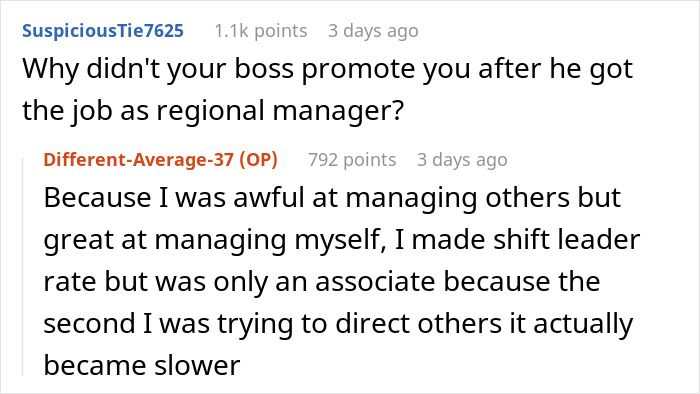


“People don’t quit jobs, they quit managers,” one commenter poignantly wrote
